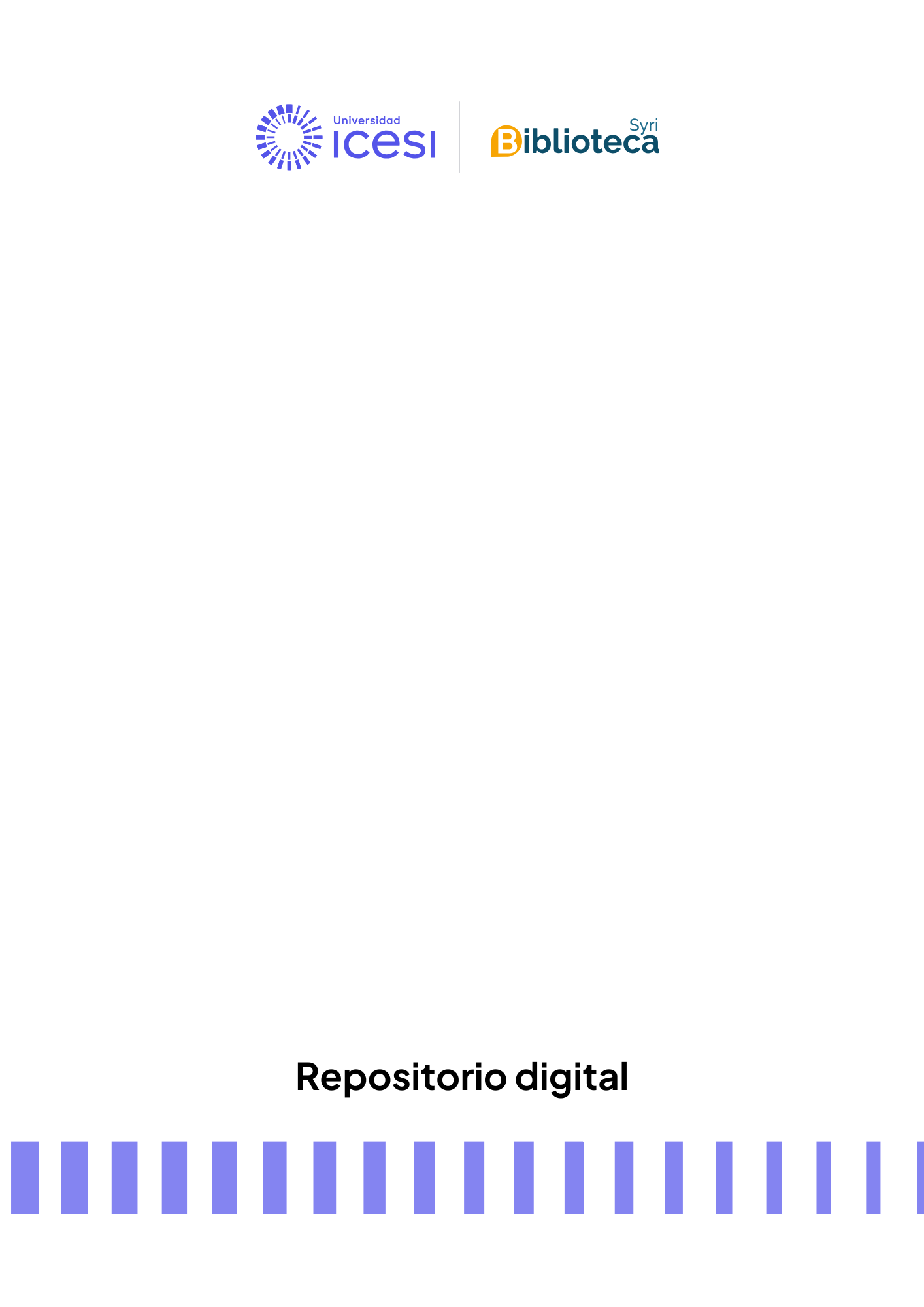Sistemas y Telemática Vol.14 No. 36
URI permanente para esta colecciónhttp://hdl.handle.net/10906/81484
Examinar
Envíos recientes
Ítem Risk management and prevention methodologies: a comparison(Universidad Icesi, 2016-01-01) Acevedo, Nancy; Satizábal, CristinaIn this paper we analyze nine risk management and prevention methodologies, carrying out a comparison of the stages that they include and determining if they take into account the human factor in the risk analysis and treatment. We observe that only 42.85% of the studied management risk methodologies include this factor and conclude that the NIST [National Institute of Standards and Technology] Risk Management methodology is the most complete, although it would be desirable for it to focus more on the human factor like the IDB [Inter-American Development Bank] Corruption Diagnosis, Prevention and Control in Programs of Civic Security methodology.Ítem Discovering the mechanisms of abstraction in the performance of work teams in children to solve computational problems(2016-01-01) Rodríguez, Patricia Paderewsky; Muñoz, René Fabián Zúñiga; Alegría, Julio Ariel HurtadoThe development of skills that allow children to perform satisfactorily in their training process and, later, in their work or social life, has become an objective for all educational and training models developed. This article deals with the relationship between thinking development skills, shared mental models and abstraction mechanisms, from a theoretical review and application with children aged between eight and twelve, from the Childprogramming methodology in a public education institution in Colombia. The results recorded at the end of the practices with this group of students, especially when assessing the progressive use of abstraction mechanisms in the Scratch environment, are presented, using the Dr. Scratch platform.Ítem Towards the design of a social-inspired module for the decision making of nodes in an ad hoc network(2016-01-01) Ceballos, Henry Zárate; González, John Edwar; Ortiz, Jorge EduardoThis article presents the state of the art derived from a research project where the construction of a software module related with the capability of the wireless nodes to decide whether or not to enter an ad hoc network, is proposed. If the decision is to enter, the amount of resources needed to provide the net is assessed by analyzing data provided for the network about the resources available and the number of nodes and internal parameters (CPU, hard disk, and processor, among others) through a mathematical model. The module developed should interact with an interpreter at a lower level and with a higher level entity, a distributed system. The research is supported by the computational system of the TLÖN group of the Universidad Nacional de Colombia, where its main purpose is to study the application of a social-inspired paradigm in ad hoc networks.Ítem Definition of a data model that includes the instructional design to describe the elements involved in the design of virtual courses(2016-01-01) Perea, Betsy Mary EstradaConventional software engineering methodologies have strategies for analysis and design of educational software applications, but they have evolved in relation to the phase of the instructional design. In this article, from the review of some models of instructional design and the identification of gaps in two proposed models for the design of virtual courses, a data model is proposed to describe the elements involved in the design of virtual courses and illustrate the relationships between such elements. In preparing this model, we take into account the activities of some models of instructional design. The construction of this data model is a contribution to formalize the design of virtual courses.Ítem Emotiv EPOC BCI with Python on a Raspberry pi(2016-01-01) Barrera Monje, Cristian Raúl; Patrón, José SalgadoEl sistema de Interfaz Cerebro-Computador [BCI, Brain-Computer Interface] brinda una percepción en el desarrollo de interfaces aplicables para los usuarios con diferen-tes aproximaciones, desde aplicaciones médicas hasta videojue-gos, donde lo autónomo y lo wearable (utilizable en el cuerpo humano) hacen referencia a accesibilidad para los usuarios. Sistemas como los EPOC ofrecen una solución simple para la adquisición de señales de electroencefalografía y electromiogra-fía, a bajo costo y con una rápida configuración, si se comparan con el equipamiento médico de alta tecnología.

